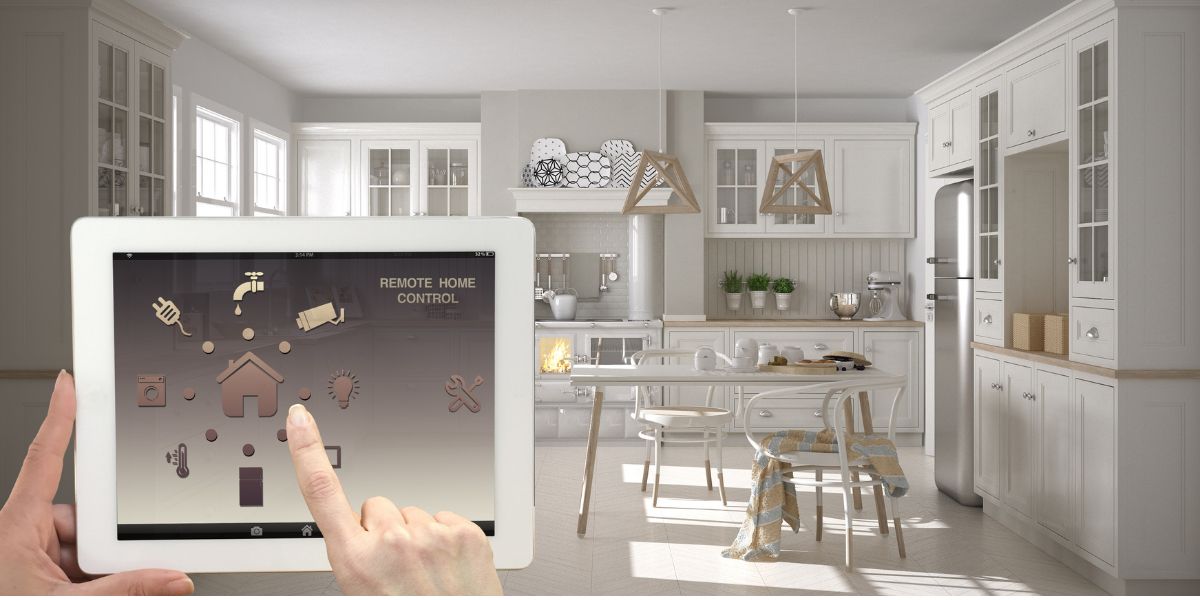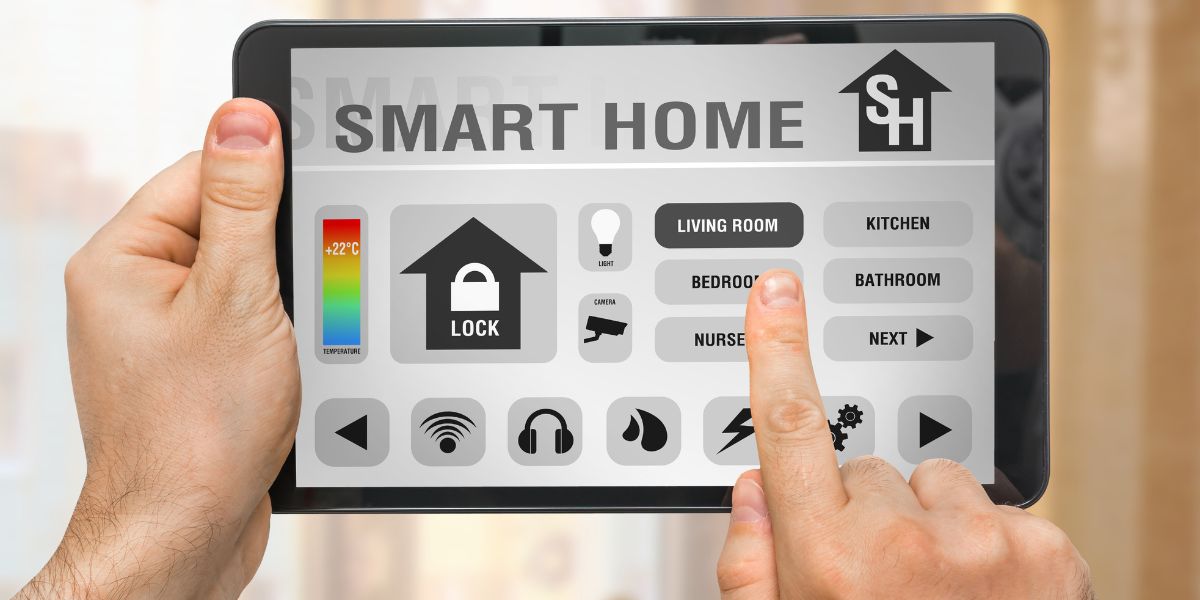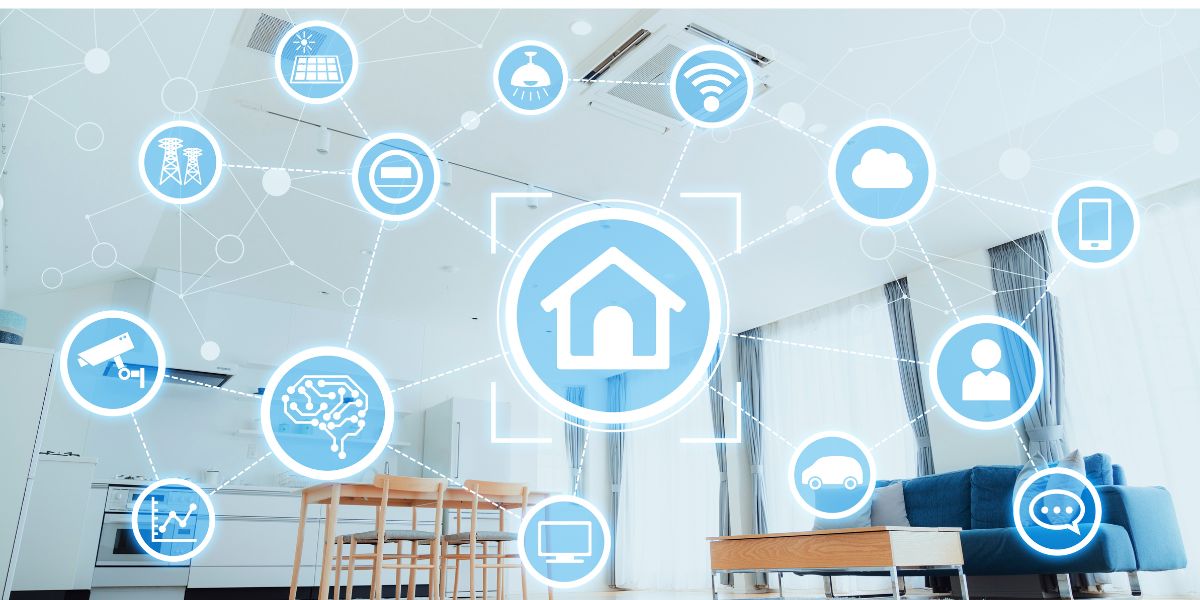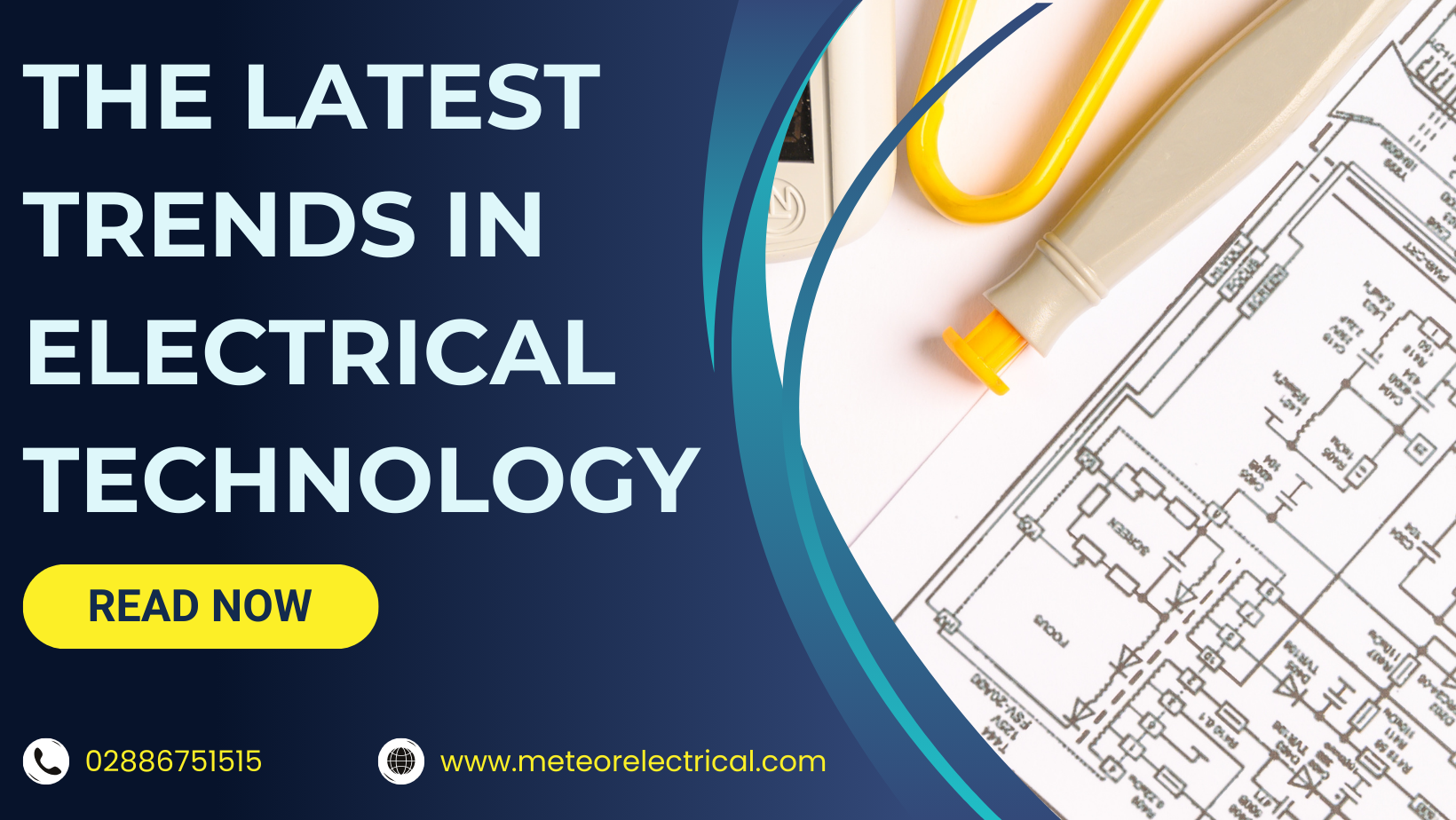The Latest Trends in Electrical Technology

The world of electrical technology continues to evolve rapidly, transforming how we live, work, and interact with the world. Each year brings new advancements that push the boundaries of what’s possible, making our lives more convenient, energy-efficient, and connected. From smart home devices to electric vehicles, the innovations of 2024 are reshaping industries and driving us toward a more sustainable, tech-driven future. But with so many developments, it can be overwhelming to know which trends to focus on. Let’s dive into the top electrical technology trends for 2024 and explore how they’re changing the game.
Key Electrical Trends in 2024

The electrical industry is on a rapid upward trajectory, driven by increasing demand and innovation. The global electronic product market revenue is expected to surpass $1.2 billion in 2024. With an annual growth rate of around 2.5% projected until 2028, it’s clear that the market will continue expanding. This growth fuels the development of high-quality, cutting-edge products designed to meet the needs of tech-savvy consumers.
One major player in the electronics market remains smartphones. Leading the charge in consumer demand, mobile phones dominate the largest market segment. Experts predict that mobile device sales will generate over $505 billion in 2024, showcasing the continued importance of staying connected in today’s world. The future of smartphones includes closer integration with other smart devices, making connectivity even more seamless.
Credit: CNET
The Future of Smart Home Devices

Smart homes are no longer a futuristic concept—they’re an integral part of modern living. The smart home market is projected to continue its significant growth over the next few years. By 2028, nearly 99% of UK households are expected to own at least one smart device. These devices, ranging from lighting and security systems to appliances, create a connected ecosystem that simplifies daily tasks and improves energy efficiency.
A key driver behind this trend is the rising popularity of Matter software, a universal connectivity standard designed to enable smart home devices from different brands to work together effortlessly. In 2024, Matter software is set to become the dominant technology, making it easier than ever for consumers to integrate various smart products into one cohesive system.
Many homeowners opt for devices that help them achieve a smart network in their homes to create a more extensive network. Global spending on Internet of Things products is expected to reach 1.1 trillion USD by 2023.
Energy efficiency is also a growing concern for consumers, making smart home devices that reduce energy consumption particularly popular. As energy costs continue to rise, homeowners are increasingly seeking out devices that can automate energy-saving processes and offer better control over household consumption.
Credit: Techly Reports
Electric Vehicles: The Road Ahead

The electric vehicle (EV) market has made tremendous strides, and its popularity shows no signs of slowing down. In 2024, the electric vehicle market is expected to generate $21.5 billion in revenue, with electric car registrations reaching new records. Fleet and business consumers are leading this charge, with nearly 70% of new EV registrations in the UK coming from commercial buyers.
However, the consumer market for EVs is also experiencing rapid growth. By 2030, it’s estimated that 7 million UK households will own an electric vehicle, demonstrating a significant shift toward greener, more sustainable transportation options. This shift is largely driven by increased awareness of climate change and government incentives to phase out petrol and diesel vehicles.
A significant shift towards EVs can be attributed to more climate change awareness. 44% of petrol, diesel, and hybrid drivers plan to switch to fully electric cars in ten years.
Experts believe that as electric vehicles become more affordable and accessible, the technology will continue to advance, offering consumers greater range, faster charging times, and enhanced energy efficiency. The rise of electric vehicles is not just a trend—it’s the future of the automotive industry.
For a deeper dive into electric vehicle trends, visit The Guardian’s EV section here.
Renewable Energy and Its Impact on Electrical Technology

While renewable energy may not seem directly related to electrical products, the increasing focus on energy efficiency is driving innovation in this space. In 2024, the UK’s renewable energy capacity is set to increase by 35%, with offshore wind power leading the charge, according to RenewableUK. As governments and businesses move away from fossil fuels, the demand for products that are compatible with renewable energy will rise.
The UK has set a new goal for wind power generation in 2023. The plan highlights 87% of wind power generation in the year that will be supplied to the national power grid.
More efficient products mean consumers can make better use of renewable energy, reducing their overall carbon footprint. For example, many modern appliances are now designed to be compatible with solar power, helping homeowners reduce their reliance on the traditional energy grid. As renewable energy capacity grows, expect to see more electrical products designed to work with green energy sources.
To learn more about renewable energy trends, visit RenewableUK’s website here.
What Is a Smart Home?

With the rapid rise of electrical technology, smart homes have become a significant trend for homeowners looking for convenience, security, and energy efficiency. But what exactly is a smart home?
A smart home is an interconnected system of appliances and devices that are controlled remotely using a Wi-Fi connection. These devices, linked through the internet, can be operated via smartphone, tablet, or other networked devices. This allows users to adjust home settings such as security access, lighting, temperature, and even entertainment systems, no matter where they are.
For example, you can use your smartphone to unlock your front door, change the lighting mood, or even start the coffee maker—all without being in the same room. The smart home market is continuously growing, with the number of active households equipped with smart technology expected to reach 25.4 million by 2026. This demonstrates the increasing popularity of smart home systems and their potential to revolutionise how we manage our homes.
Additionally, smart home systems help reduce energy consumption, ultimately lowering your utility bills. For homeowners seeking greater efficiency, this is one of the most appealing features of smart home technology.
Credit: Control4
How Do Smart Home Systems Work?

As mentioned earlier, all smart home devices can be accessed through a central hub—whether that’s your smartphone, laptop, or even a game console. A specialised home automation system allows you to manage appliances such as refrigerators, thermostats, and televisions, all from a single platform.
These systems often allow for self-learning capabilities, meaning they can adapt to your daily habits and preferences. For instance, your smart thermostat can learn when you’re usually home and automatically adjust the temperature to your liking.
Moreover, many smart home systems provide security features. Motion sensors can alert you to any unusual activity while you're away, while smart locks and cameras can monitor your home in real time. If something happens, some systems can even notify local authorities such as the fire department or police.
Once your devices—such as smart doorbells, locks, and cameras—are all connected, they form part of the Internet of Things (IoT). This allows the devices to work together to provide seamless control over your home environment.
Creating a Smart Home
When building your smart home, you have two main choices: wireless or hardwired systems. Wireless systems are much easier to install and work well with smart lighting, heating, and security. They are also more cost-effective, as they save you from expensive installation fees. Wireless systems, due to their affordability and flexibility, are perfect for homeowners looking to start small.
On the other hand, hardwired systems can increase your property’s resale value, as they are considered a long-term investment. However, the installation can be costly and is typically reserved for new builds or major renovations.
The best approach for most homeowners is to gradually introduce smart appliances, starting with smart lighting and heating. These are affordable entry points and can immediately start building a connected home. If you're looking for top-quality smart devices, Meteor Electrical offers a wide range of smart lighting, heating, switches, and more to help you create the home of the future.
What Are the Benefits of Creating a Smart Home?

Now that we’ve covered what a smart home is and how it works, let’s discuss the key benefits of investing in smart technology.
1. Save Energy and Money
One of the main reasons homeowners opt for smart homes is the potential to save both energy and money. Smart thermostats and heaters make managing your home’s temperature more efficient, while smart lighting allows you to control energy usage down to the last light bulb. By cutting back on energy consumption, you’ll also see significant reductions in your utility bills.
2. Comfort and Convenience
Smart home technology offers unparallelled comfort and convenience. With just a few taps on your smartphone or via voice command, you can control your home environment. Many smart devices can even be programmed to activate based on your location, the time of day, or certain sensors, making your home work around your routine. This level of automation is why so many people are switching to smart home solutions like smart lighting and thermostats.
| Smart Home Feature | Description | Benefits |
|---|---|---|
| Smart Lighting | Remotely control lights, adjust brightness, and set schedules | Energy savings, convenience, and mood setting |
| Smart Thermostat | Automate temperature control based on schedules or preferences | Reduces heating/cooling costs and improves comfort |
| Smart Security Systems | Cameras, locks, and motion sensors that provide real-time alerts | Enhanced home security and remote monitoring |
| Smart Appliances | Ovens, refrigerators, vacuums that can be controlled remotely | Automates household tasks, improves efficiency, and saves time |
| Energy Monitoring | Tracks energy usage across smart devices | Helps identify energy wastage, leading to cost savings |
3. Enhanced Safety and Security
While traditional home security systems provide solid protection, smart security systems take it to the next level. Smart home security setups often include interlinked locks, lights, cameras, and motion sensors, providing you with real-time surveillance and control over your home’s security. If you’re away, these systems can give you peace of mind by allowing you to check in on your property anytime.
4. Simplified Household Tasks
Busy lifestyles mean many homeowners don’t have the time to manage daily chores. That’s where smart home technology comes in. With devices like smart vacuums and ovens, you can automate a lot of tasks, freeing up time for more important activities. Whether it's setting up a cleaning schedule for your robot vacuum or preheating your oven remotely, smart technology makes it all possible.
5. Valuable Energy Insights
For those who are particularly energy-conscious, many smart home systems provide detailed insights into your energy usage. With this information, you can pinpoint where energy is being wasted and make adjustments to save even more on utility bills. In today’s climate-conscious world, this feature is invaluable.
Conclusion
Smart homes are more than just a passing trend—they represent the future of electrical technology. With benefits ranging from energy savings and enhanced security to increased comfort and convenience, smart home systems are becoming a key part of modern living. Whether you're looking to start small with smart lighting or build a fully connected home, the possibilities are endless.
By investing in smart home technology, you can take control of your home, improve your lifestyle, and ultimately, save money in the long run. Explore the wide range of smart devices available at Meteor Electrical to get started on your smart home journey today.
FAQs
1. What is a smart home?
A smart home is a setup where appliances and devices are connected to the internet, allowing users to control them remotely via smartphone, tablet, or other devices. This system offers convenience, energy efficiency, and enhanced security.
2. What are the benefits of a smart home?
Smart homes provide several benefits, including energy savings, increased convenience, better security through remote monitoring, and the ability to automate everyday tasks. They can also offer valuable insights into your energy consumption.
3. Is a smart home expensive to set up?
The cost of setting up a smart home depends on the type of system you choose. Wireless systems are more affordable and easier to install, while hardwired systems may require a larger investment but increase property value.
4. How does smart home technology help save energy?
Smart home devices like thermostats, lighting, and appliances allow users to optimise energy usage by automating and monitoring consumption. This reduces waste and can lead to significant savings on utility bills.
5. Can smart home systems improve home security?
Yes, smart home security systems can enhance safety by providing real-time alerts, remote monitoring, and interlinked systems such as cameras, door locks, and motion sensors. This gives homeowners more control over their property’s security.

